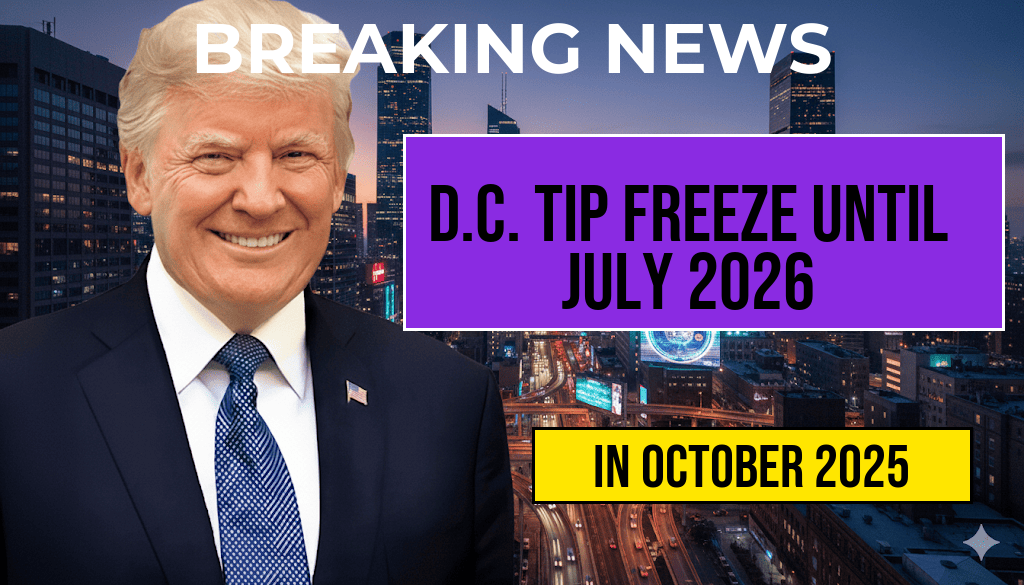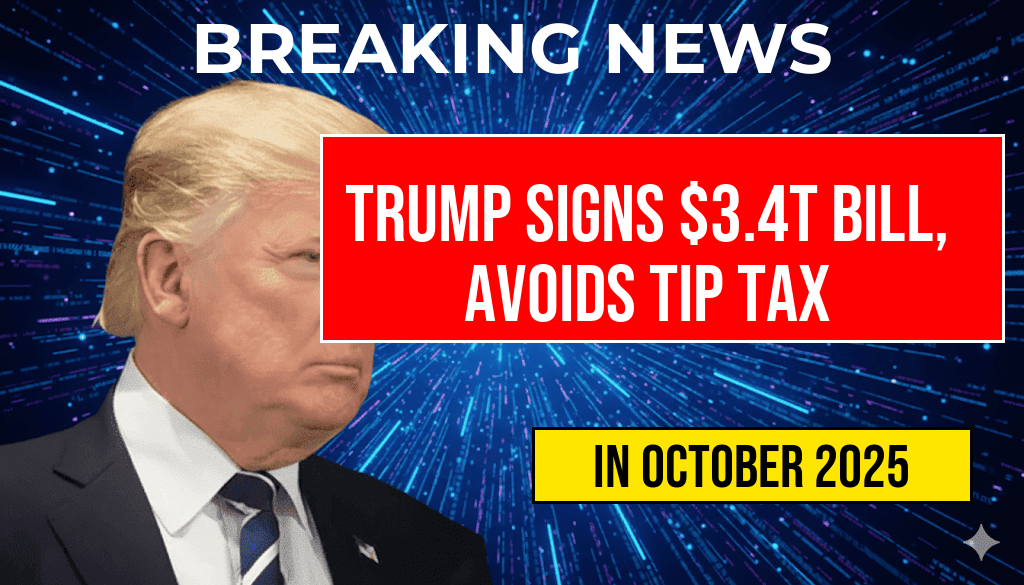The ongoing tip freeze in Washington, D.C., has left thousands of service workers grappling with stagnant wages, as the legislation prohibits any base pay increases until July 2026. This situation is particularly challenging for those in the hospitality and food service industries, where tips often constitute a significant portion of income. Under current regulations, tipped workers are stuck at a base hourly wage of $10, with many relying on tips to make ends meet. As the cost of living continues to rise in the nation’s capital, concerns about economic disparity and worker satisfaction are growing among labor advocates and industry professionals alike.
The Impact of Tip Freeze on Workers
The tip freeze, established as a part of a broader strategy to stabilize the restaurant industry during the pandemic, has now extended its reach into 2026, leaving many workers feeling disillusioned. Service employees, who typically earn a substantial part of their income from gratuities, are being affected by both the freeze and the rising costs associated with living in D.C.
Stagnant Wages Amid Rising Costs
- Base Pay Stagnation: The $10 minimum wage for tipped workers has not changed since the freeze was implemented, meaning that despite inflation and increased living expenses, these employees are not seeing any financial relief.
- Cost of Living Increases: D.C. has become one of the most expensive cities in the U.S., with housing, food, and transportation costs constantly on the rise.
- Worker Discontent: Many employees express frustration over the inability to earn more during a time when they are expected to provide high-quality service to patrons.
Industry Responses and Future Implications
Various stakeholders in the hospitality industry have voiced their concerns over the freeze. Restaurant owners and managers are feeling the pressure as they strive to maintain their workforce while also managing rising operational costs. The absence of a pay increase may lead to higher turnover rates as workers seek better compensation in other sectors.
Voices from the Front Lines
Workers have shared their experiences, highlighting the challenges they face daily. Many have reported feeling undervalued, especially as they depend on tips to supplement their income. One local server stated, “It’s tough to make ends meet when you’re counting on tips and your base wage hasn’t changed in years.” This sentiment is echoed by numerous colleagues in the industry.
Legislative Context and Future Prospects
The decision to implement a tip freeze was initially aimed at helping businesses recover from the economic fallout of the pandemic. However, as the years have progressed, critics argue that this policy has outlived its usefulness. Advocates for change are calling for a reevaluation of the current wage structure and a more equitable approach to compensating tipped workers.
Potential Legislative Changes
As the expiration date of the tip freeze approaches, there may be discussions in the D.C. Council about potential reforms. These could include:
- Raising the base wage for tipped workers to better align with the current cost of living.
- Implementing a gradual phase-out of the tip credit system, where employers can pay lower base wages based on expected tip income.
- Increasing support for workers through training programs and financial assistance.
Conclusion
The tip freeze in D.C. until July 2026 has significant implications for thousands of service workers, leaving many in a precarious financial situation. As the city navigates its post-pandemic recovery, the voices of those affected by this legislation will be critical in shaping future policies aimed at ensuring fair wages and a sustainable workforce. Stakeholders across the board are urged to engage in constructive dialogue to address the pressing needs of tipped workers, fostering a more equitable economic environment for all.
For further information on this topic, you can visit Wikipedia or check out the latest updates from Forbes.
Frequently Asked Questions
What is the current status of the tip wage in D.C.?
The tip wage in D.C. is frozen until July 2026, which means that workers who rely on tips will continue to earn a minimum of $10 per hour without any base pay increase this year.
Why is there a tip freeze in D.C.?
The tip freeze is implemented to maintain consistency in the earnings of workers who depend on tips, but it has resulted in no increase in base pay for these workers until the freeze is lifted in 2026.
How many workers are affected by the tip wage freeze?
Thousands of workers in D.C. are affected by the tip wage freeze, as it prevents them from receiving any increase in their earnings while relying heavily on tips for their income.
When will the tip wage be reviewed again?
The tip wage in D.C. is scheduled to be reviewed and potentially adjusted after the freeze ends in July 2026.
What implications does the tip freeze have on workers’ earnings?
The tip freeze means that workers who depend on tips will continue to earn a stagnant base rate of $10 per hour, which may impact their overall financial stability and ability to keep up with rising living costs.






